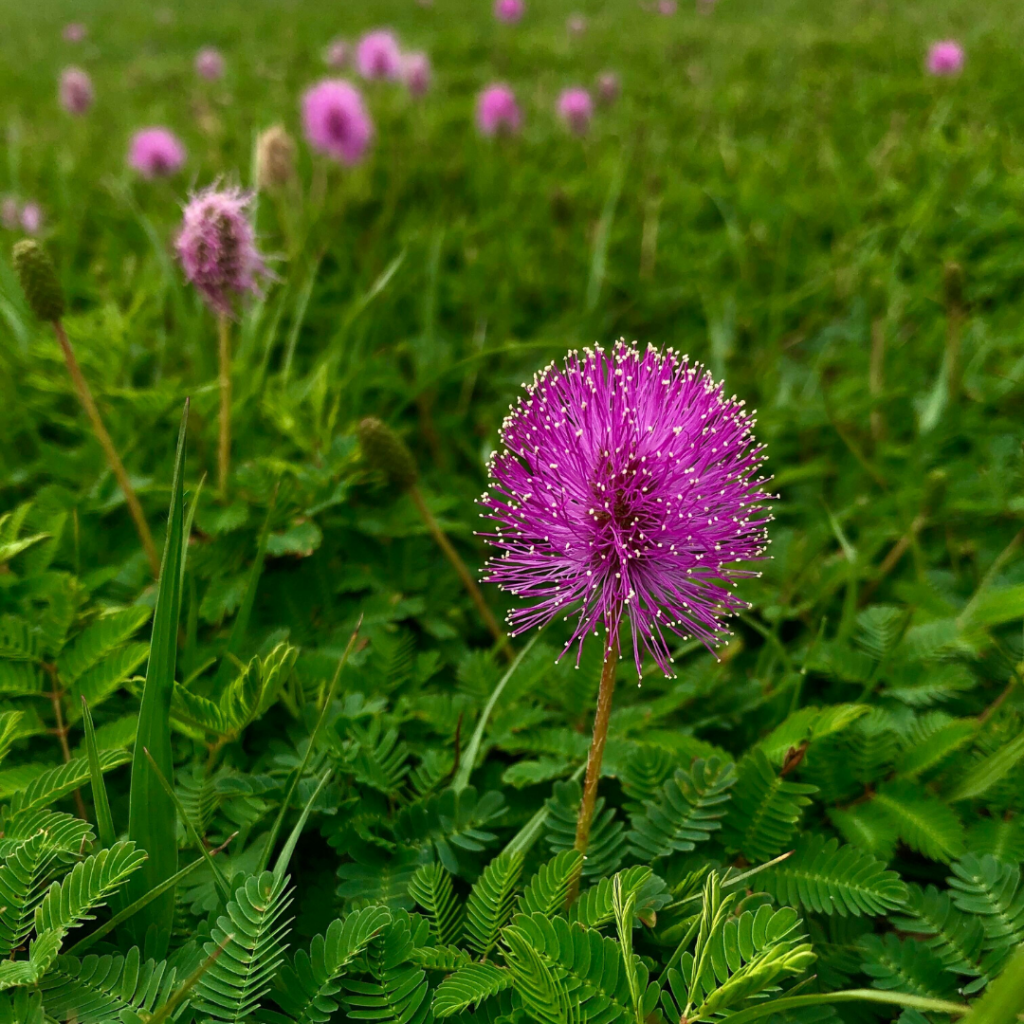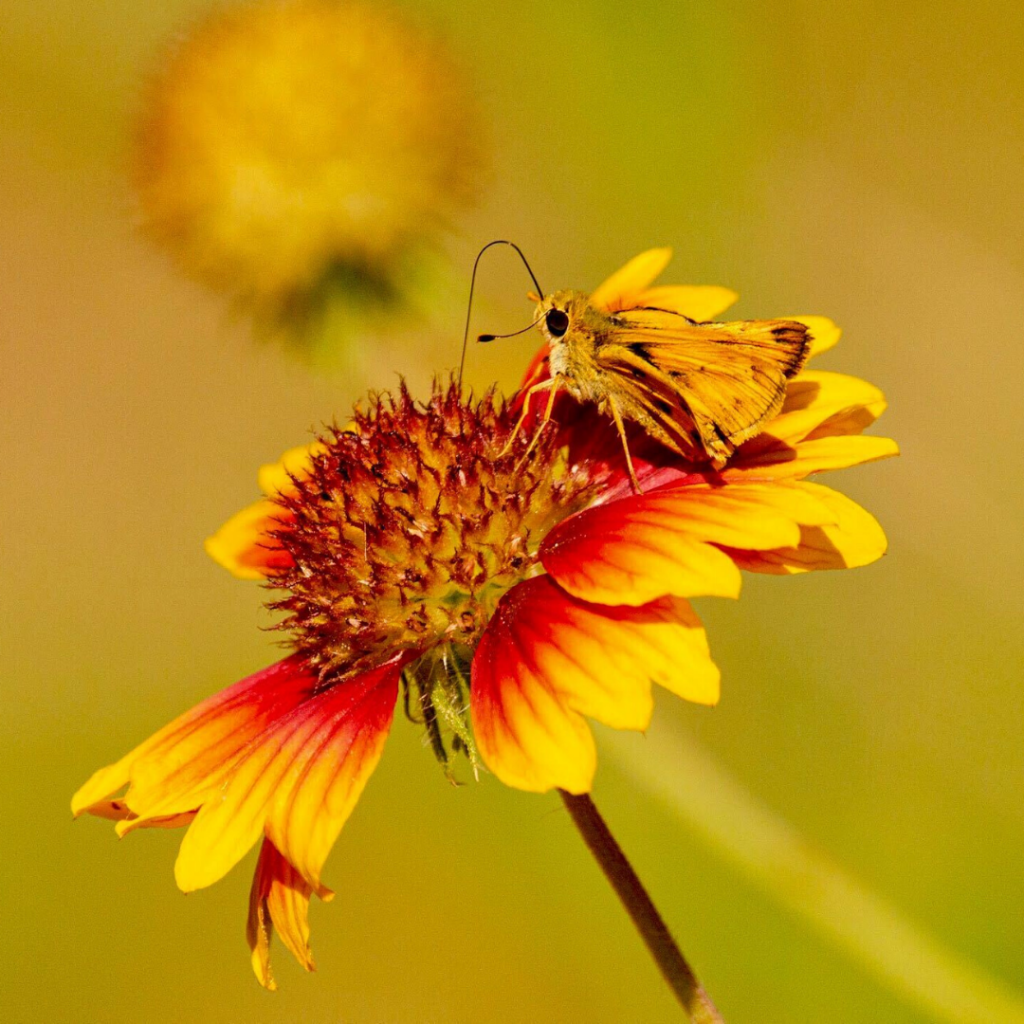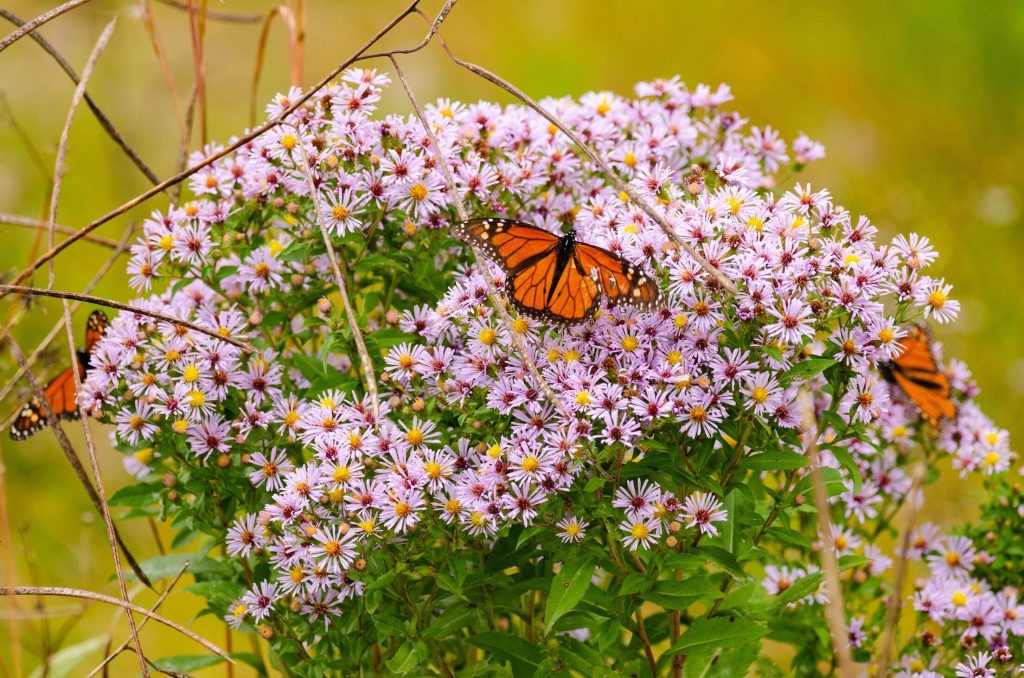Pollination is the process of transferring pollen grains from one flower to another. Pollinators come in many shapes and sizes. While “worker bees” get all the pollinator credit, butterflies, birds, bats, and beetles also play a role. In fact, bats are responsible for pollinating over 500 different plants, and there are about 2,000 species of pollinating birds worldwide!
Pollinators are essential parts of our environment. They play a crucial role in our ecosystems. Scientists have concluded that over 85% of the world’s flowering plants, including more than two-thirds of the world’s crop species, can thank a pollinator for the necessary ecosystem services they provide. Here in Florida, it’s estimated that pollinators contribute over $1B annually to our agricultural industry.
Since many of us are still staying home due to COVID-19, we wanted to highlight the ways that individuals can help pollinators in their own backyards. We have identified 3 ways to help create pollinator habitat at home:
- Rethink your landscape: A bright green grass lawn is great for recreation but it can be considered a dead-zone when it comes to providing habitat for pollinators. Mow less – invite native grasses and wildflowers instead. These simple changes will promote local biological diversity and provide food and shelter for native wildlife. Bonus: growing native ground cover will substantially lower your water use!
- Plant native species: From tall, pink coneflowers to bright yellow coreopsis, Florida native plants are beautiful and help our ecosystems function. Our native pollinators have evolved alongside our native plants and are especially suited for their specific morphology. Native plant species are typically the best sources of nectar and pollen for native pollinators.
- Put down the pesticides: Many pesticides (including insecticides, fungicides, and herbicides) harm pollinators and other beneficial insects. You’ll find, however, that native plant species that are specially adapted to thrive naturally in the local environment do not require pesticide use!
Let’s face it: we can’t live without our bees, birds, butterflies, beetles, and bats. The main threats facing pollinators are habitat loss, degradation, and fragmentation of habitat. Here at Florida Conservation Voters, we recognize that land conservation plays a major role in helping to save species, including pollinators. Besides providing suitable pollinator habitat in your own backyard, you can also urge your lawmakers to protect our natural resources. When we protect land, we protect pollinators. By conserving land through programs like Florida Forever, we invest in our state’s natural systems and the flora and fauna that call them home. FCV advocates for conserved land through full Florida Forever funding and responsible land management. Read more about the work FCV is doing to preserve our treasured natural spaces in the Gems Report.

Allowing native groundcover into your yard, like powderpuffs (Mimosa strigillosa), provides habitat and nectar for pollinators. Photo by Daisy Andrews 
Florida native plants, like the blanketflower (Gaillardia pulchella) pictured here, are beloved by native pollinators. Photo by Tyler Carney

Resources:
FL Native Plants for Pollinators – https://gardeningsolutions.ifas.ufl.edu/design/gardening-with-wildlife/bee-plants.html and
Attracting Pollinators to Your Garden – https://www.fs.fed.us/wildflowers/pollinators/documents/AttractingPollinatorsEasternUS_V1.pdf
UF/IFAS Gardening for pollinators (self-paced online course) – https://ifas-pollinators.catalog.instructure.com/courses/gardening-for-pollinators?fbclid=IwAR3itAJ6nLX7zzTkveUFX8aydYLmpLjFwraamMyLMC6HJ6_rZvhjFatCeNU

